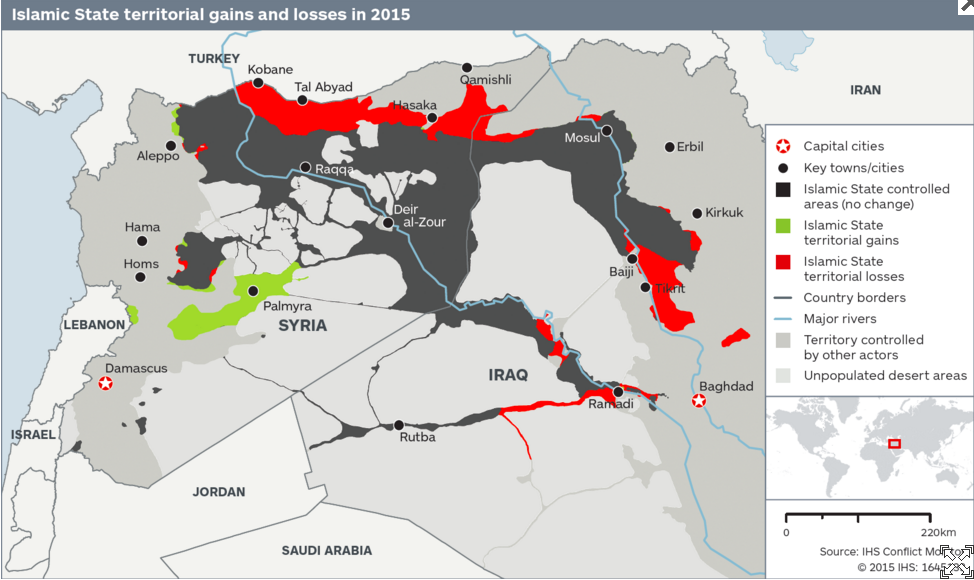ISIS Lost a Bunch of Territory This Year
By:
Despite its potency and cultural prominence as a global terrorist organization, the self-proclaimed Islamic State consistently lost territory this year, with its "caliphate" shrinking by as much as 14 percent, according to a new report.
One of the group's explicit goals is to expand the territory it controls to grow its so-called "caliphate," where it exacts a militant interpretation of Islamic governance.
Related: This Muslim American Isn't Afraid Of Donald Trump or Terrorism
The group has consistently splashed across headlines this year, with its unique, barbaric blend of violence and social media prowess captivating the world's attention and instilling an inordinate sense of fear in towns and cities everywhere. But the report highlights the group's struggles on its home front, strategic failures some have speculated are the reason for recent indiscriminate attacks in Western countries.
 IHS Conflict Monitor - ihs.com
IHS Conflict Monitor - ihs.com
Between January 1 and December 14, the group's territory shrunk by 12,800 km2 to 78,000 km2, "a net loss of 14 percent," according to the think tank IHS Jane's, which issued its report on Monday. Large swaths of that territory is in northern parts of Syria, including a main border crossing point near Turkey, the group said.
"We had already seen a negative financial impact on the Islamic State due to the loss of control of the Tal Abyad border crossing prior to the recent intensification of air strikes against the group’s oil production capacity,” said Columb Strack, senior Middle East analyst at IHS, and lead analyst for the IHS Conflict Monitor, in a statement.
Related: Hackers Used Viagra to Brilliantly Troll ISIS
Other strategic losses include the Iraqi city of Tikrit, the Baiji oil refinery, and an important stretch of highway used for transferring goods between the group's largest cities Mosul and Raqqa — its de facto capital. The group did, however, also make some important gains this year, capturing the ancient Syrian town of Palmyra and the city center of Ramadi, the capital of Iraq's Anbar province. The group made those gains at the expense of some northern areas, where Kurdish fighters have held sway, according to IHS.
This week, Iraqi forces with the support of U.S.-led air strikes advanced on Ramadi, a key Islamic State stronghold, in hopes of reclaiming the capital where possibly tens of thousands of civilians still reside, the BBC reported.
